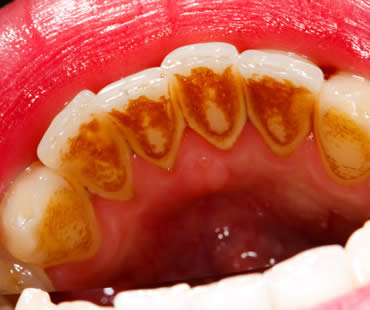In recent years, dentists and oral health professionals have thought that 3 out of 4 American adults, or roughly 75 percent, have some level of gum disease. A new survey indicates that those estimates are low. According to the National Health and Nutrition Examination Survey conducted by the Centers for Disease Control and Prevention in Atlanta and the American Academy of Periodontology, the actual numbers may be 50 percent higher. If correct, these numbers suggest gum disease is a much larger problem in this country.
Also referred to as periodontal disease, gum disease is mainly caused by plaque, the sticky substance that forms on your teeth. Plaque can harden into tartar, which irritates the gums and causes pockets of infection to form between your gums and teeth. Other factors like genetics, stress, lifestyle choices, and certain medications can also increase your chances of developing gum disease. Because the symptoms start out mild, usually red or bleeding gums, many people don’t realize they have this condition. Without treatment, periodontal disease can lead to gum recession and tooth loss.
In the past few years, gum disease has also been linked to other health problems. Research has found a connection between periodontal disease and chronic conditions such as rheumatoid arthritis, osteoporosis, heart disease, and Alzheimer’s. Pregnant women with untreated gum disease have a greater risk of pre-term labor and low-birth weight babies.
To decrease your risk of gum disease and protect your smile, follow these tips:
- Clean teeth at least twice a day with a soft-bristle toothbrush
- Floss regularly
- Schedule routine checkups with your dentist
- Contact your doctor right away if you have swollen or bleeding gums
Schedule your appointment at our McDonough dental office



 (470) 665-5292
(470) 665-5292  E-Mail Us
E-Mail Us 
